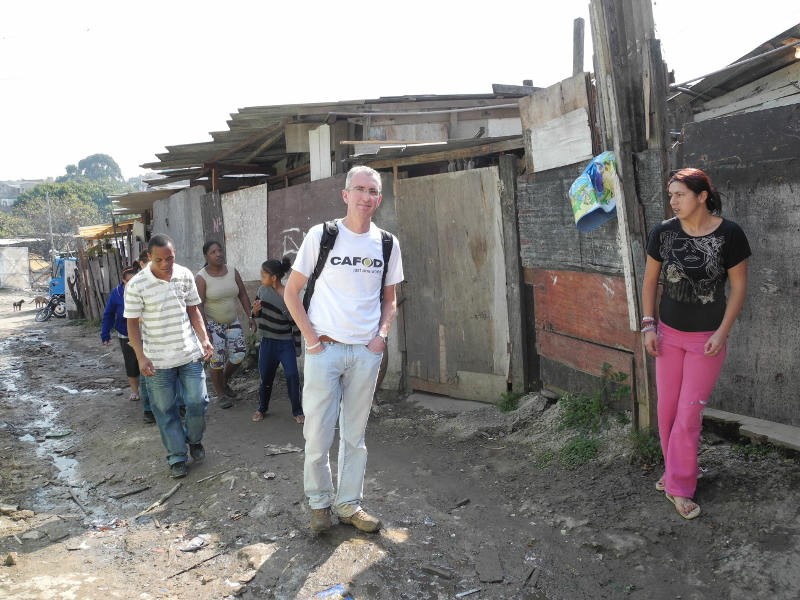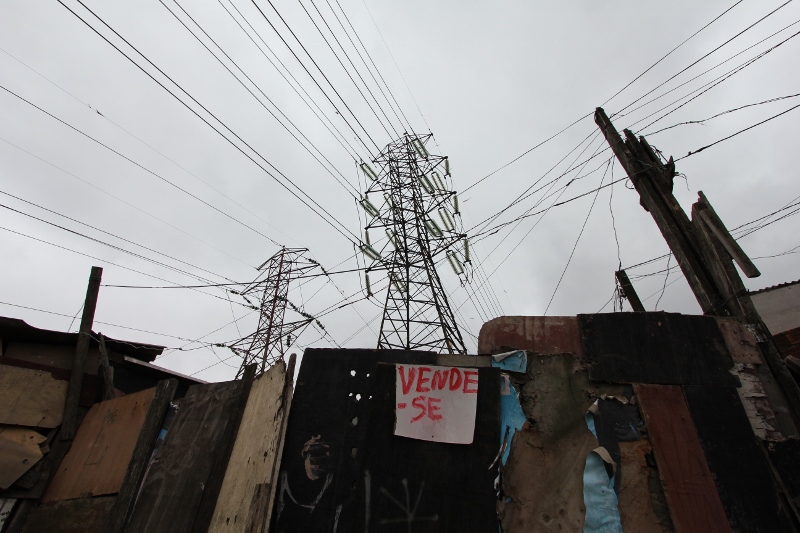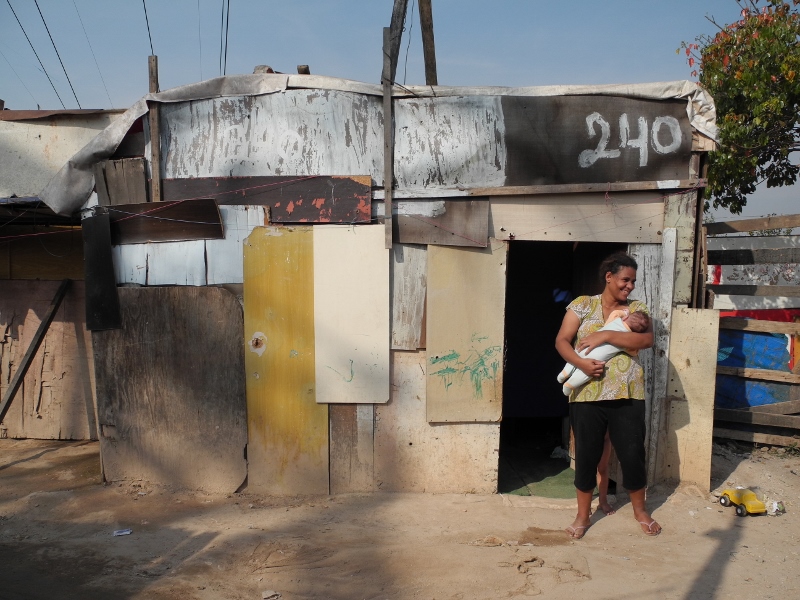Defending rights in Brazil: supporting our brothers and sisters living in favelas

Tony Sheen is CAFOD’s Community Participation Coordinator for Westminster Diocese. Here he looks back on a memorable visit to São Paulo’s favelas in Brazil. He explains how seeing the Church ‘in action’ defending the human rights of those in need continues to inspire him.
A couple of years ago I was lucky enough to visit São Paulo and meet some of the people supported by CAFOD’s partners. Early one morning I travelled with Heluiza and Osmar from our partner APOIO, to visit a shanty town to the east of the city called Electropaulo Favela, where over 1200 families live in abject poverty.
5 human rights violations CAFOD partners are working on
Living amongst electrical pylons
Hundreds of fragile houses are built out of wood and constructed amongst large electrical pylons, on land which is partly owned by the government and part owned by the newly privatised electric company.
São Paulo is Brazil’s biggest city, home to 11 million people. Many Brazilians suffer extreme hardship in rural areas and migrate to cities like São Paulo in search of a better life. Yet once in the cities, families often end up living in rundown tenements, on the streets or in shanty towns.
Stand by CAFOD partners investigating a recent massacre of landless workers in Brazil

What I witnessed in Electropaulo Favela was a welcoming poor community who are living in harrowing conditions.
The favela is just fifteen minutes from the biggest shopping city in South America and very close to the Corinthians football stadium.
In few places is Brazil’s inequality laid barer than considering the public money spent on a stadium that has in its shadow informal settlements lacking even basic services. Osmar told me the money used to fund the stadium could have provided 15,000 family homes.
Be inspired to take action – become a campaigner with CAFOD
A dangerous existence
Making our way along the muddy dirt tracks of the favela I meet 30-year-old Anna Paula, who lives with her husband and three children next to a large rubbish dump. In her arms is her 3 month old daughter Alexandra Victoria. She told me how she struggled to feed her children.
“I like living here but would like to move to a better place” says Anna. “We do not pay for electricity as we can get a free supply. But when there are storms it is really dangerous, everything gets wet and electric shocks spark off all over the place.”
Please pray for the favela residents of São Paulo
Families in Electropaulo Favela live a dangerous existence. Every day they come face-to-face with risks in their environment – including from electric shocks, hazardous jobs, or the rat-infested rubbish dump.
They also face the challenge of keeping young people away from drug dealing and prostitution, as well as the constant threat that bulldozers could destroy their homes at any point.
Our partner APOIO is supporting the community in various immediate and long-term ways.

Joining one of the community groups set up by our partner can be a matter of life or death for some residents in Electropaulo Favela.
APOIO lobby the government to re-house the community in safe and dignified housing. The morning I visited, they were also distributing milk as part of a government funded scheme to support vulnerable mothers, children and elderly people.
Lobbying for lasting change
Many of the residents would like their families to move into social housing, but to have that opportunity you need an address and the authorities do not acknowledge the favela houses as a proper address.
Development is a rocky ride for so many people: finally gaining access to services can be great, but many are privatised and too expensive. This can push families back into poverty. The ongoing and long-term support of our partner to help communities defend their rights and lift them out of poverty is vital.
It is important to shine a light on the urban, rural and indigenous communities in Brazil who have been left behind by development.
CAFOD has worked in Brazil for 47 years, but there is still a lot of work to be done. Communities like Electropaulo Favela are living in abject poverty and need our support and our prayers. My faith has shown me that you don’t leave your brothers and sisters in that situation.
The Church in action
Our partners I met in Brazil are an example of the Church in action, helping those in need whoever and wherever they are.
Their infectious enthusiasm comes from seeing the work not just as a job, but as a vocation; their lives are entrenched in service to the poor.
Seeing their tireless efforts inspired me to use my voice to help those – near and far – who are voiceless and whose lives are afflicted by poverty, discrimination, inequality or the damaging impacts of climate change.
Use your voice – become a campaigner with CAFOD
Stand by our partners investigating a massacre of landless rural workers in Brazil
Reblogged this on Ascension Youth Ministry.
Reblogged this on Ascension Youth Ministry.
Reblogged this on CAFOD Westminster Blog.